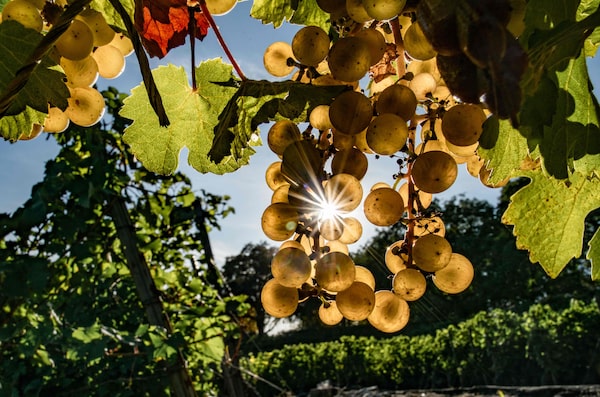Investing in blue-chip companies can beef up a portfolio. But few would call that particular investment strategy exciting.
What do high-net-worth investors sink money into when they want to shake things up?
The answer, of course, depends on their investment goals, but often it reflects quirky personality traits as well. We asked six wealth advisors to tell us how their clients added some spice to their portfolios.
The Tool Shed Brewery in Calgary, Alta.Jeff McIntosh/The Globe and Mail
Craft beer
“One of our clients invested in a very well-known craft beer company,” says Robert Janson, president and chief investment officer at Westcourt Capital Corp., Toronto.
“She essentially did it so her kids would think she was cool. I think she put $1-million in and took $9-million out when it was all said and done," Mr. Janson says. "She ended up doing extremely well.”
Microinvesting
Philanthropic microinvesting is interesting, says Frank Danielson, senior financial planner at Danielson Group Wealth Management, of Assante Capital Management Ltd., in Vancouver.
"I’ve seen people lend out a million dollars in $200 or $500 portions to thousands of people in Africa,” he says. It gives opportunities to people who don’t have access to capital.
"The investor could still earn an 8- or 9-per-cent return on that money, and the default rate is a lot lower than people think.
"It’s ‘heart’ investing. You know, it feels good in your heart.”

The uber-wealthy have been buying vineyards.FRANK RUMPENHORST/AFP/Getty Images
A vineyard
Susan Latremoille, wealth advisor and director of wealth management at the Latremoille Group, of Richardson GMP Ltd., Toronto, knows an investor who bought a vineyard.
"I don’t know whether it’s actually making money or not, but this has been a trend the last few years with the uber-wealthy,” she says. “They want the prestige of owning a vineyard, whether it be in California, Niagara or Italy.”
If the wines win awards you can do very well, she says. "I would not advocate that the average person start thinking, ‘How can I buy a vineyard?’ though. You can lose everything. But the good news is the financial markets are still the best way to make money over the long term. Maybe you can’t say, ‘Oh, I own a vineyard,’ but you can buy shares in companies that produce wine.”
Canadians can invest in U.S. projects that produce jobs and "earn" citizenship there.The Associated Press
U.S. investments, with one eye on citizenship
Many wealthy people are snowbirds, escaping to warmer climes during winter.
“They’ll be in Arizona or Florida for the winter, then come back to Canada and complain about having to file their tax returns in April,” says Terry Ritchie, director of cross-border wealth services for Cardinal Point Wealth Management Inc. in Calgary. “And of course the weather sucks. They often say, ‘We don’t want to come back to Canada any more. What can we do?”
They might check out the EB-5 Immigrant Investor Program. "It was created by Congress many years ago as a mechanism to create jobs and spur growth in certain areas of the United States. Wealthy Canadians can make a half-million-dollar investment into things like sports arenas, and then they get a green card. Wealthy Canadians can effectively buy their way into the U.S.”
Investments in wine require a long time horizon.Jim Ross/The Globe and Mail
Wine
Wine investors need to spring for name-brand bottles, says Lorne Steinberg, president of Lorne Steinberg Wealth Management Inc. in Montreal. "The really super high end. It doesn’t mean it’s the best wine, but it’s the first-growth Bordeaux, the high-end Burgundies, the Château Lafite Rothschilds and Château Pétrus. Anything below that is not investable wine,” he says.
“Wine requires a bit of a long-term time horizon. People will buy Bordeaux futures. You’re paying the money today and owning the bottles to be delivered in three year’s time. Then you’ll keep it for 10 years before trying to sell.”
Giving back close to home
An investment need not result in a monetary return. “We’re in a smaller community, and we have really generous people here. There’s a lot of what you would call small-town values. People help their neighbours," says Christine Beaumont, a certified financial planner with Paul Craft Financial Inc. in Steinbach, Man.
"I’ve observed that our clients’ objectives change over time once they’ve achieved a certain level of wealth. They’re thinking about leaving a legacy and investing back into the community. Maybe that’s supporting the integration of newcomers or helping the underprivileged and the marginalized.
They’ve been able to secure a legacy for their own families, she says, "but now they’re wanting to do things over and above – and a lot of them are doing it very quietly.”
Interviews have been edited and condensed.